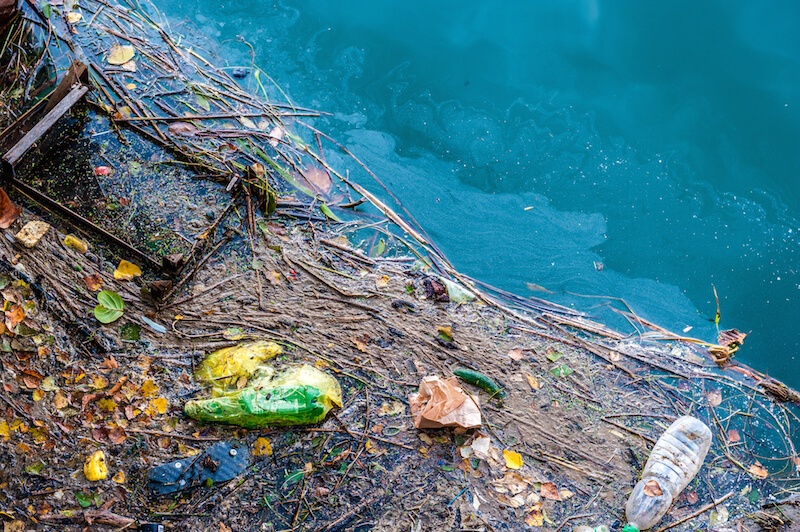
Welcome back! I hope that you had a nice long weekend (as nice as possible during a pandemic!) and that you were able to spend some time relaxing or with family.
What Do I Have To Do This Week?
This week we will be exploring specific risks facing the Ocean, as well as investigating some of the species that are considered threatened or endangered. We will also beginning taking a look at the impact of plastic pollution - which will be our main focus for next week. This post is divided into three sections - you don't have to do everything at once. Pause - take breaks, and don't get over-saturated with the content. Good study involves time, thought and reflection.
This week you will:
- READ THE TEXT IN THIS BLOG POST, taking personal notes for yourself that you will use at the end of this unit. There are three parts to this week's content. Part 3 involves you choosing ONE species to learn more about.
- Complete one LEARNING ACTIVITY that you will post on Teams by the end of the week.
RECAP- LAST WEEK: WHY IS THE OCEAN IMPORTANT?


Last week I asked you to briefly write about your own personal experiences with the ocean, and to explore some of the topics that grabbed your attention. We discussed the fact that a healthy ocean is essential to our survival, but it is a mystery to many of us.
TASK: Watch the following video clip and remind yourself as some reasons why the ocean is essential. Pay attention - which statistic grabs your attention this week?
As we studied the basics about the ocean and ocean eco-systems last week, we also discussed the fact that while there are different 'names' for oceans (ex. Atlantic, Pacific, etc.) - they are all interconnected. This is an important point - what we do in one location of the ocean will inevitably travel its way to other spots, carried by winds and ocean currents. It also means that solving any problem in the world's ocean is enormously complex.
So why are these issues difficult to solve? Part of the issue is that the ocean is considered international waters. Countries only "own" and can regulate up to 20km off their coastline. This means that there aren't clear boundaries or borders, and that the ocean is a share space. Sometimes when resources are shared - they can become abused.
There is a philosophical theory discussion surrounding shared spaces in the Geography world - we call this the Tragedy of the Commons. Here is a short video that explains this concept and theory.
So why are these issues difficult to solve? Part of the issue is that the ocean is considered international waters. Countries only "own" and can regulate up to 20km off their coastline. This means that there aren't clear boundaries or borders, and that the ocean is a share space. Sometimes when resources are shared - they can become abused.
There is a philosophical theory discussion surrounding shared spaces in the Geography world - we call this the Tragedy of the Commons. Here is a short video that explains this concept and theory.
THIS WEEK'S SPOTLIGHT - RISKS FACING THE OCEAN

PART 1: HOW DO HUMANS AFFECT THE OCEAN?
Predict: What are some of the key problems facing oceans and aquatic species? If you guessed oil spills, pollution, single-use plastic waste, habitat destruction and human-induced climate change - you are correct. The future of our oceans is greatly at risk - and this is something that should concern you. Next week we will explore some of the solutions to these problems, but its important that we recognize that education is always a great answer - and so while we are stuck at home, we have some time to consider our own actions and consumption choices.
TASK 1: Watch the next video created by BBC - its called the Future of the Oceans, and brings up some tough statistics about the coming decades. As you watch, discuss which issue is most important to you - and one that you might try and work towards solving?
TASK 2: Read through the following article "Oceans in Peril". Record 1-2 key facts about each of the 5 risks. Then, read through the article 'Arctic Up Close' and record key details.
ARTICLE - Oceans in PerilARTICLE - Arctic Up Close
PART 2: OCEAN PROBLEMS - UP CLOSE

Now that you have had a chance to read an overview of some of the risks, let's watch a series of videos to help you uncover some of the key details. These videos are short. Watch them all and take brief notes as you watch. Try and think about 1-2 key points per video. Record any powerful statements that are made in the videos. Pause when you need a break.
OVERFISHING & HARMFUL FISHING PRACTICES
Video 1 - What Happened If all the fish disappeared? - Tech Insider
Video 2 - What is Bottom Trawling and Why is it Dangerous for Fish? - Greenpeace
Video 3 - Will the Ocean Run Out of Fish? - TED-Ed
COASTAL POLLUTION & WASTE
Video 4 - How Does Plastic End Up in our Ocean?
Video 5 - Why We Need to Stop Using Plastic - Oceana
Video 6 - How Big is the Pacific Garbage Patch?
Video 7 - Mumbai - the Man Who Cleared Up 9,000 tons of trash from Mumbai

Now that you have had a chance to read an overview of some of the risks, let's watch a series of videos to help you uncover some of the key details. These videos are short. Watch them all and take brief notes as you watch. Try and think about 1-2 key points per video. Record any powerful statements that are made in the videos. Pause when you need a break.
OVERFISHING & HARMFUL FISHING PRACTICES
Video 1 - What Happened If all the fish disappeared? - Tech Insider
Video 2 - What is Bottom Trawling and Why is it Dangerous for Fish? - Greenpeace
Video 3 - Will the Ocean Run Out of Fish? - TED-Ed
COASTAL POLLUTION & WASTE
Video 4 - How Does Plastic End Up in our Ocean?
Video 5 - Why We Need to Stop Using Plastic - Oceana
Video 6 - How Big is the Pacific Garbage Patch?
Video 7 - Mumbai - the Man Who Cleared Up 9,000 tons of trash from Mumbai
PART 3: Which Ocean Species Are Threatened?
Choose ONE of the endangered/threatened species below to learn more about. Record notes, and consider what you could do to raise awareness of these issues.
Choose ONE of the endangered/threatened species below to learn more about. Record notes, and consider what you could do to raise awareness of these issues.
CHOICE 1 - SHARKS
CHOICE 2 - SEA TURTLES
The Survival of Sea Turtles - TED-Ed
CHOICE 3 - THE VAQUITA
The Vaquita - most endangered species
https://www.youtube.com/watch?v=jrXiPN40A00&feature=emb_logo
Sci-Show - We probably can't save the Vaquita
https://www.youtube.com/watch?v=dkTvoQkFwG8
CHOICE 4 - MANATEES (DUGONGS)
Gentle Giants - Manatees and Boats
https://www.youtube.com/watch?v=dkuqWlHZo5I
What in the world is a dugong?
https://www.youtube.com/watch?v=YProaycNpHE
Everglades national park
https://www.youtube.com/watch?v=HPrPtCns5Lc
CHOICE 5 - WHALES
Blue Whales 101:
The Ocean Is Too Loud for Whales and Dolphins
https://www.youtube.com/watch?v=r-pZDzGStV0
Why the Ocean is Getting Louder - Vox Magazine
CHOICE 6 - SALMON
National Geo: Millions of Salmon Return Home
https://www.youtube.com/watch?v=ZR4_LhPCgbo
Frontline: Salmon Farming Crisis
https://www.youtube.com/watch?v=CsO8NO-hUKo
Farmed salmon vs. Wild Salmon
https://www.youtube.com/watch?v=KFUe-dzTIrY
Ok! That's all the content for this week. Now take the notes and reflections that you kept during this week's research, and let's put them into a short reflection. Complete the Learning Activity below.
SUMMARIZE - LEARNING ACTIVITY FOR WEEK 2
Due - end of the week (ideally Friday, but Monday is fine)
Where Should You Post? - In the Week 2: Oceans channel
A. Review the notes that you took as you watched the videos and read the different readings.
B. Write a response that you will post on Teams by the end of the week. You will post in the Week 2: Ocean Risks Channel. Ensure your work is grammar-checked and edited.
In your response, answer the following questions:
1. Which risk facing the ocean is most concerning for you right now? Be specific, and defend your answer with facts from this week's sources.
2. Describe 1-2 things that were surprising to you from this week's readings and video clips. What's something that has stuck with you this week and made you think about?
3. Which species did you choose to investigate more closely? Describe 1-2 reasons why they are at risk, and how they are being affected by human activity.
4. What's a question that you are thinking about right now, after studying this week's content?
YOU'RE DONE! POST AND YOU ARE DONE FOR THIS WEEK.
The Vaquita - most endangered species
https://www.youtube.com/watch?v=jrXiPN40A00&feature=emb_logo
Sci-Show - We probably can't save the Vaquita
https://www.youtube.com/watch?v=dkTvoQkFwG8
CHOICE 4 - MANATEES (DUGONGS)
Gentle Giants - Manatees and Boats
https://www.youtube.com/watch?v=dkuqWlHZo5I
What in the world is a dugong?
https://www.youtube.com/watch?v=YProaycNpHE
Everglades national park
https://www.youtube.com/watch?v=HPrPtCns5Lc
CHOICE 5 - WHALES
Blue Whales 101:
The Ocean Is Too Loud for Whales and Dolphins
https://www.youtube.com/watch?v=r-pZDzGStV0
Why the Ocean is Getting Louder - Vox Magazine
CHOICE 6 - SALMON
National Geo: Millions of Salmon Return Home
https://www.youtube.com/watch?v=ZR4_LhPCgbo
Frontline: Salmon Farming Crisis
https://www.youtube.com/watch?v=CsO8NO-hUKo
Farmed salmon vs. Wild Salmon
https://www.youtube.com/watch?v=KFUe-dzTIrY
Ok! That's all the content for this week. Now take the notes and reflections that you kept during this week's research, and let's put them into a short reflection. Complete the Learning Activity below.
SUMMARIZE - LEARNING ACTIVITY FOR WEEK 2
Due - end of the week (ideally Friday, but Monday is fine)
Where Should You Post? - In the Week 2: Oceans channel
A. Review the notes that you took as you watched the videos and read the different readings.
B. Write a response that you will post on Teams by the end of the week. You will post in the Week 2: Ocean Risks Channel. Ensure your work is grammar-checked and edited.
In your response, answer the following questions:
1. Which risk facing the ocean is most concerning for you right now? Be specific, and defend your answer with facts from this week's sources.
2. Describe 1-2 things that were surprising to you from this week's readings and video clips. What's something that has stuck with you this week and made you think about?
3. Which species did you choose to investigate more closely? Describe 1-2 reasons why they are at risk, and how they are being affected by human activity.
4. What's a question that you are thinking about right now, after studying this week's content?
YOU'RE DONE! POST AND YOU ARE DONE FOR THIS WEEK.
Comments
Post a Comment